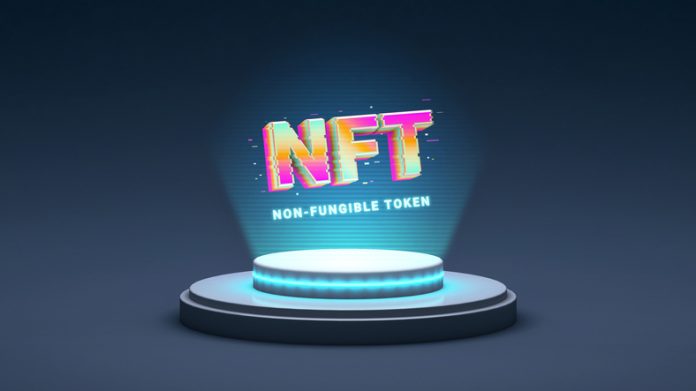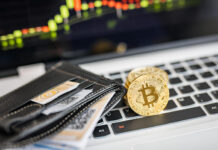The finance sector in Dubai has undergone rapid expansion in recent years, with several specialized financial institutions and the development of a robust regulatory framework. Learn more on a reputable site like the NFT Profit platform.
The Dubai International Financial Center (DIFC) is the leading financial hub in the city and is home to several banks, asset managers, and insurance companies. There is also a growing Islamic finance sector, with several institutions offering Sharia-compliant products and services.
The regulatory Act of Dubai
The regulatory environment in Dubai is overseen by the Dubai Financial Services Authority (DFSA), which is responsible for licensing, supervising, and enforcing regulations in the DIFC. The DFSA has a reputation for being proactive and efficient and has been recognized as one of the leading financial regulators in the region.
The finance sector in Dubai is expected to continue to grow in the coming years, supported by strong economic growth and an increasing number of high-net-worth individuals in the city. There is also significant potential for further development of the Islamic finance sector, given the large Muslim population in the UAE.
NFT is a new technology that can revolutionize the finance sector of Dubai. NFT can be used to create, store, and transfer value in a secure, transparent, and efficient way. As a result, Dubai has excellent potential to become the world leader financially.
In addition, NFT can also be used to create, store, and transfer other types of value, such as identity, art, and intellectual property. It could potentially make Dubai a world leader in the digital economy.
NFTs have the potential to make Dubai a world leader in the finance sector. The government is working on creating a regulatory framework and sandbox environment to make this a reality.
NFT’s a positive influence on the finance sector of Dubai
The Dubai government has recently announced its plans to launch a pilot project that will explore the use of blockchain technology and digital currencies in the city’s financial sector. This move signals a firm commitment from the government to embrace new technologies that can positively impact the economy.
The Dubai government’s plans to pilot blockchain technology in various aspects of the city’s infrastructure strongly indicate the potential for NFTs. The city has already been working on several blockchain-based projects, including a digital currency called emCash.
The use of NFTs is not without its risks, however. Given the lack of regulation around NFTs, scammers can create fake NFTs and sell them.
Negative impacts of NFT on the finance sector of Dubai
The UAE’s finance sector has been one of the most vibrant and innovative globally. In recent years, the Emirate of Dubai has become a leading international financial center, with many banks, insurance companies, and other financial institutions operating within its territory. However, the recent rise in popularity of non-fungible tokens (NFTs) has raised concerns amongst some members of the UAE’s financial community, who believe that the new technology could hurt the sector.
There are several reasons why NFTs could hurt the finance sector in Dubai. Firstly, NFTs are not regulated by any central authority, which means a risk of fraud and financial crimes associated with their use. Secondly, NFTs are not backed by any physical asset, which means their value is speculative. It could lead to investors losing a significant amount of money if the value of NFTs were to drop suddenly.
If more people start using NFTs to buy, sell and trade digital assets, there would be less need for banks, stockbrokers, and other financial intermediaries. It could have a detrimental impact on the Emirate’s economy, as the finance sector is one of the key growth drivers.
If NFTs become widespread, it could damage the Emirate’s image as a safe and reliable place to do business. It could lead to a reduction in foreign investment and a loss of confidence in the Dubai economy.
While it is still early for the new technology, it is vital to be aware of these risks and closely monitor the situation. If NFTs continue to grow in popularity, they will significantly impact how the finance sector operates in Dubai.
Future of NFT and finance sector of Dubai
The NFT market is still in its early stages, but it has already shown great potential. For example, people could also use them to store and transfer money. Moreover, with the help of smart contracts, NFTs could automate financial transactions and reduce the need for intermediaries.
By making it easier to store and transfer value, they could help to reduce poverty and inequality. In addition, it could make it easier for people in developing countries to access financial services.
The potential applications of NFTs are endless. In the coming years, we are likely to see more and more businesses and organizations experiment with this new technology. If they can do that, they could have a bright future ahead.
Conclusion
The effect of NFT on the finance sector of Dubai is not yet known. However, it is speculated that NFTs could positively impact the sector by making it more efficient and transparent. Additionally, NFTs could also help reduce the cost of transactions and increase liquidity in the market. Overall, the effect of NFT on the finance sector of Dubai is still unknown but could potentially be positive.
Disclaimer: This article contains sponsored marketing content. It is intended for promotional purposes and should not be considered as an endorsement or recommendation by our website. Readers are encouraged to conduct their own research and exercise their own judgment before making any decisions based on the information provided in this article.




































































